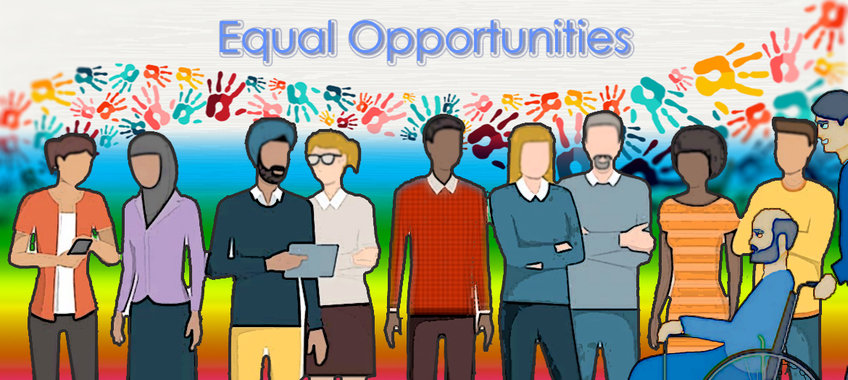Equal Opportunities
The Max-Planck-Institute of Biophysics has committed itself to promote excellence, creativity and passion of its employees regardless of gender, nationality, religion, disability, age, cultural origin and sexual identity. A prerequisite of successful collaboration at our Institute is a common understanding of collegial interaction and a space that is free of any discrimination. Our Institute strives for an open institutional culture to which everyone can contribute to the best of their abilities.
Our equal opportunities work focusses on the compatibility of family and research as well as a mentoring of young researchers to foster their individual career paths. Some measures are offered via the Max Planck Society while some are organised locally via the Institute.
Our family-friendly staff policy carries a seal of quality. In order to reconcile family and work the Max Planck Society has taken extensive actions to support their employees.
As the first German research organisation, the Max Planck Society was granted the logo of the non-profit organisation
berufundfamilie (“career and family”) in 2006, after a comprehensive certification process.
Finding ways to support our employees in the reconciliation of family and work will not replace the needed social rethinking in this matter, but will provide a contribution to equal opportunities in order to avoid that employees feel a need to choose between career and family.
The
Foundation for the promotion of science and research, initiated in 2004, supports talented young women with children. It aims to enable them to create the freedom and mobility required to further their scientific careers. The Foundation wishes to help prevent science from losing excellent talent. It is aimed specifically at graduate students and postdoctoral fellows in the fields of experimental natural sciences and medicine.
In 2019,
Bonnie Murphy (now an Independent Research Group Leader) was awarded a fellowship.
The Dual Career Service, coordinated by the Goethe University and the Max Planck Institute of Biophysics, is a member of the
Dual Career Network Rhine-Main Region. The network is designed to promote an exchange of knowledge of the industry as well as of information on possible job opportunities offered by other employers within the network.
The Max Planck Society has set up a mentoring programme -
Minerva-FemmeNet - that offers support to all female junior scientists - from graduate to top qualified scientists - tailored towards their respective professional qualifications.
Website: www.minerva-femmenet.mpg.de/
Nationwide career advancement for women: The Hessian University Presidencies (Konferenz Hessischer Universitätspräsidien, KHU), the Hessian Universities of Applied Sciences (HAW Hessen) and the University of Applied Sciences of Geisenheim have signed a cooperation agreement to set up a new, intercultural and countrywide mentoring structure for career advancement for women.
Within the
Elisabeth Schiemann Kolleg scientific members of the Max Planck Society foster the careers of excellent female scientists after their postdoc phase, helping them to succeed on their way to an appointment as a tenured professor or as a director of a research institution.
Since July 2017, young scientists (PhD with MPG support contract or postdocs with TVöD contract) can apply for a
child care subsidy. The MPG supports child care for children between 3 and 12 months. The parents choose which child care option best suits their professional and family situation and the MPG reimburses 50% of the costs (max 400 EUR/ month). This project is currently restricted to one year. Please submit your application at the human resources office.
Kita Kairos is located just a five-minute walk from the Institute and offers a total of 135 places for infants and kids from three months to six years of age. Kita Kairos is a joint project of the Goethe University and the Max Planck Society, offering places for children from the university and the Max Planck Institutes of Biophysics and for Brain Research. The „Gesellschaft zur Förderung betrieblicher und betriebsnaher Kindereinrichtungen e.V. - BVZ” is the pedagogic operator.
Please contact Human Resources if you would like to register your child.
Each year, the Max Planck Institute of Biophysics organises a
Girls’ Day where 20 high-school students are offered a visit to the Institute.
The
Max Planck Junior Scholars Program offers summer internships to excellent high-school students to gain research experience at the Max Planck Institute for Brain Research (Frankfurt am Main), the Max Planck Institute of Biophysics (Frankfurt am Main) or the Max Planck Institute for Heart and Lung Research (Bad Nauheim), to kindle enthusiasm for a future career in the natural sciences. Students currently enrolled in grade 10 or 11 are eligible to apply.











